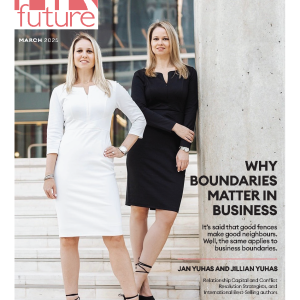Employees seek meaningfulness in their work experience. Meaningfulness is about the significance of the experience, an end state. What leads to meaningfulness in the workplace is not the same as factors that create meaninglessness (Bailey & Madden, 2016).
When something is meaningful, it is always a positive experience for the employee. However, a positive experience can, paradoxically, be a challenging experience. There are many stories of sacrifices made by employees in COVID for the greater good of society.
Viktor Frankl, a holocaust survivor and psychotherapist who endeavoured to humanise psychotherapy, proposed the will to meaning is a human condition intrinsic to each of us even in the most challenging circumstances. The motivation to seek meaning is thus ever-present for employees in all their work-related encounters (Smither, 2003) and, as such, integral in the employee’s experience. Incorporating meaningfulness into the employee experience creates a gateway for Employee Experiences Strategists and leaders to boost the associated positive results of engagement (Asiwe, Rothmann, Jorgensen & Hill, 2017) and talent retention Dana, 2018) with a superior employee experience.
Organisations could still be employing some outdated strategies to attract talent. For example, I know a high-performing South African Gen Z intern (from 1995) who was being wooed in a three-day internship programme daily with luxury gifts such as French champagne, speakers, and more. Although the gifts were well received, I asked the intern what part of the intern experience was most meaningful to them. This intern appreciated working in a team of people who care about doing well and the constructive feedback toward their growth in the team presentations.
With the significance of teams on the rise, failure to attend employee experience in the team context could be a missed opportunity in an organisation’s employee experience strategy as the team forms part of the employee experience. Furthermore, some of the employee’s experience in the team lies in their personal experience within the team, extending beyond the organisation’s prescription. Influencing these personal and social dimensions in the workplace (Lipkin, 2016) can be challenging for Employee Experience Strategists and leaders tasked to enhance the employee experience as it is up to the employee to evaluate which experience is important in their life.
In my master’s research at the University of Stellenbosch, I defined employee experience as ‘a set of positive perceptions employees have about the meaningfulness of their work in response to all encounters with their organisations’ (Neill, 2019). This novel definition adds a psychological dimension that positively charges the traditionally neutral concept of employee experience adopted from the customer experience body of knowledge.
Furthermore, this expanded definition of employee experience invites eco-systems to be cultivated to enable the discovery of meaningfulness at work and give interventions like team coaching positive goals.
Team coaching is a group intervention that can elicit learning outcomes from reflection, such as increased awareness (Jones et al., 2019). This outcome is relevant to enhancing the employee experience as it is through reflective practice the employee can find meaningfulness in their experience. A study showed that meaningfulness occurs in heightened moments of reflection and appreciation (Bailey & Madden, 2017). The process aligns with the coach’s role according to the International Coaching Federation (ICF), the largest network of coaches in the world.
An ICF coach would partner with an individual client or team in self-discovery or creating meaning.
The team coach is vital in bringing a team coaching process to life. The team coach using ICF coaching principles can partner with the team to find answers to questions such as:
– What culture and community can we build that will invite us to contribute openly?
– What shared goals are we going to create progress towards?
– What impact can you bring to your team members, organisation and stakeholders?
– What contributions do you make that are valued by others?
– What role do you play in the greater good?
– What helps us create positive relationships and validate our membership in this team?
These reflective questions can activate types of meaning for a team member that only occurs in group experiences (Rosso, Dekas, & Wrzesniewski, 2010). These include having a sense of belonging, positive relationships, shared
value systems, shared goals, connection to the greater good and being a part of something greater than oneself.
Doing so can release human potential in ways that benefit the organisation while simultaneously creating personal benefits for every employee.
As a team coach practising in South Africa, I have been aware that coaches and organisations seek solutions for their challenges, such as employee experience enhancement relevant to the South African context, which can include meaningfulness (Steger, 2016). In addition, the team practitioners in my master’s study also confirmed meaningfulness plays a critical role in a team coaching model for employee experience enhancement. All the team
practitioners except one are South African based. Although a sample of 12 participants in the study cannot be generalised to all team coaches, the study offers Employee Experience Strategists and leaders in South African businesses some insight that meaningfulness plays a role in the complex phenomenon of employee experience.
Furthermore, team intervention strategies adopting the principle of client self-discovery can support team members in finding meaningfulness in the team experiences which is a bridge to their experience of the whole organisation.
I use conceptual principles in my team coaching model to enhance employee experience with South African (Neill, 2019), which I propose give Employee Experience Strategists and leaders ideas to start adding the meaningfulness
factor into their employee experience enhancement policies and practices. I give each principle and a work practice that can activate the meaningfulness factor:
– Settle. Give team members assurance of how to contribute and participate meaningfully. Encourage each team to create their own shared values system and invite team member contributions to shape the goals and action plans of the team in strategy sessions. I have found people support that which they help create.
– Offer. Allow team members the opportunity to differentiate themselves in their team through their contributions. Offer positive feedback to team members on the difference their actions make. This creates a sense of their unique value to the team and their significance to the team’s greater good.
– Unite. Create a sense of belonging by encouraging collaboration and igniting ‘gees’ or team spirit through celebrating team successes. This can activate a team member’s identification with the team and promote positive relationships.
– Learn. Cultivate awareness through the practice of benefit-finding in team members and team experiences. Through employees seeing the benefit of a situation or experience in the team, meaning is discovered and learning can be taken forward.
Each of the principles is purposed to enable employees to find at least one form of meaning for themselves. Together the principles make up the acronym SOUL, but it also provides us with a metaphor to remind practitioners that the employee experience can be enhanced by engaging the employees’ hearts through the meaningfulness factor.
If you need support on your organisation’s and/or leader’s coaching journey, do contact us at [email protected] and our team of ICF professional coaches in South Africa will be happy to help.
The International Coaching Federation (ICF) is the world’s largest organization leading the global advancement of the coaching profession and fostering coaching’s role as an integral part of a thriving society. Founded in 1995, its 40,000-plus members located in more than 145 countries and territories work toward common goals of enhancing awareness of coaching and upholding the integrity of the profession through lifelong learning and upholding the highest ethical standards.
Through the work of its six unique family organizations, ICF empowers professional coaches, coaching clients, organizations, communities and the world through coaching.
ICF South Africa is a Chartered Chapter of ICF with 500+ members of which 350+ are ICF certified at the ACC, PCC or MCC level (December 2021 figures).
Contact us at: [email protected]
Research
Asiwe, D., Rothmann, S., Jorgensen, L. and Hill, C. (2017) ‘Engagement of employees in a research organisation: A relational perspective’, South African Journal of Economic Management Sciences, 20(1), pp. 1-9.
DOI:org/10.4102/sajems.v20i1.1534 Bailey, C. and Madden, C. (2016) ‘What makes work meaningful – or meaningless’.
MIT Management Review, 57(4), pp. 53-61. Dana, L. (2018).
Effective talent retention approaches. Human Resource Management International Digest, 26(7), pp.16-19. Frankl, V. (1988). The will to meaning: Foundations and applications of logotherapy. New York, NY: New American Library.
International Coach Federation [ICF]. (2021) About ICF. Retrieved from https://coachfederation.org/about Jones, R., Napiersky, U., & Luybovnikova, J. (2019). Conceptualising the distinctiveness of team coaching. Journal of Managerial Psychology, 34(2), pp.62-78. Lipkin, M. (2016). Customer experience formation in today’s service landscape. Journal of Service Management, 80(11), pp.69-96. Neill, T. (2019). A Team Coaching Model for Employee Experience Enhancement: A Research Model. Unpublished. Rosso, B., Dekas, K., & Wrzesniewski, A. (2010). On the meaning of work: A theoretical integration and review. Research in Organizational Behavior, 30, pp.91-127. Smither, L. (2003).
Managing employee life cycles to improve labour retention. Leadership in Management and Engineering, 3(1), pp.19-23. Steger, M. (2016). Creating meaning and purpose at work. In
L. Oades, M. Steger, A. Delle Fave, & J. Passmore (Eds.), Wiley Blackwell handbook of the psychology of positivity and strengths-based approaches
About the author
 Trish Neill is an Executive and Team Coach since 2008 based in Cape Town. Her special interest is supporting her clients in feeling alive in a meaningful way, not just surviving. She does this in a mutually beneficial way to both the client and the organisation. Trish is a credentialled member of the International Coaching Federation.
Trish Neill is an Executive and Team Coach since 2008 based in Cape Town. Her special interest is supporting her clients in feeling alive in a meaningful way, not just surviving. She does this in a mutually beneficial way to both the client and the organisation. Trish is a credentialled member of the International Coaching Federation.
She holds a Master of Philosophy in Management Coaching from the University of Stellenbosch Business School where she did her research in developing a team coaching model for employee experience enhancement called the SOUL model.













